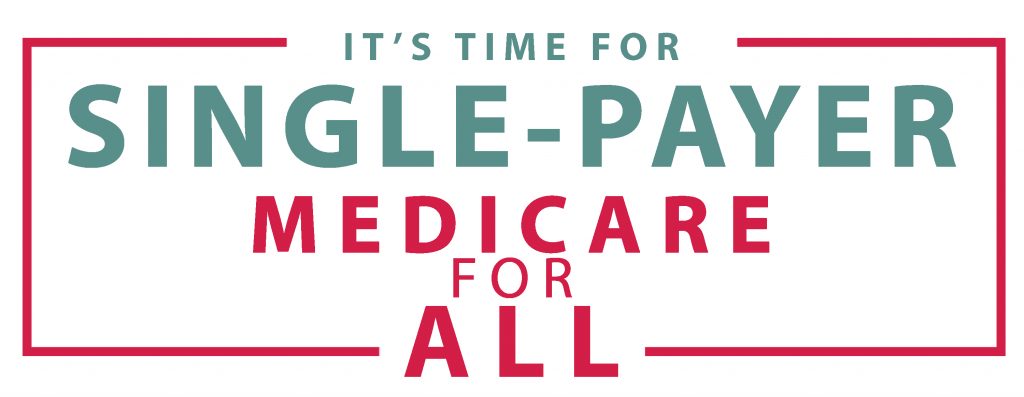
WHAT IS SINGLE PAYER?
Basic Definition:
A single-payer healthcare system is where a single entity is responsible for collecting the funds that pay for healthcare on behalf of an entire population. In contrast, a multi-payer system allows multiple entities (e.g., insurance companies) to collect and pay for those services.
Expanded Explanation:
A Single-Payer system, AKA Medicare for All (M4A), is a publicly-funded healthcare financing system that pools all health care dollars into a single government-guaranteed trust. The public trust pays the bills, but private providers deliver health care.
A single-payer health care system is the most cost-effective way to guarantee the same high standard of care to the population without financial barriers. Countries with single-payer systems spend less while providing comprehensive, high-quality health services to all residents, resulting in better population health outcomes. Single Payer is patient-centered.
In contrast, the United States currently has a multi-payer health care system, involving thousands of health plans within a complex, fragmented, expensive, inequitable, inefficient, and profit-driven landscape. A multi-payer system allows multiple for-profit entities to establish tiers of care and the ability to determine, delay or deny who gets what care. This uniquely American health insurance system is a business designed to extract profit by maximizing cost and minimizing care, to reward owners and shareholders with ever-increasing financial gain.
Multi-payer is profit-centered.
KEY FEATURES
UNIVERSAL COVERAGE
Everybody in, nobody out. Everyone is covered for life – regardless of age, race, ethnicity, sex, gender identity, employment status, income level, health condition, marital status or immigration status.
COMPREHENSIVE HEALTHCARE
All medically necessary care is covered, including outpatient visits, hospitalization, ER, surgery, dental, vision, hearing, prescription drugs, reproductive, preventative, rehabilitative, home health services, mental health, substance abuse recovery, hospice and long-term care.
FREEDOM TO CHOOSE YOUR CARE PROVIDER
No more “in network” or “out of network” You would have the freedom to choose any doctor, health professional, facility or hospital you like.
FREE AT THE POINT OF SERVICE
No more premiums, deductibles or copays. You arrive at your doctor’s office, show them your health care card and get the care you need.
PATIENT CARE BASED ON PATIENT NEED
No more financial incentives to avoid providing necessary care, including “value-based” payment models for providers. All decisions about care would be made between you and your health care provider, not insurance companies.
WANT MORE INFO?
